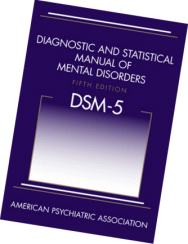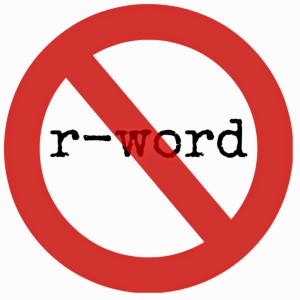This post is part of a series of guest posts on GPS by the graduate students in my Psychopathology course. As part of their work for the course, each student had to demonstrate mastery of the skill of “Educating the Public about Mental Health.” To that end, each student has to prepare two 1,000ish word posts on a particular class of mental disorders.
______________________________________________
An ID not meant to Identify by Andrea Chavez
 The first appearances of the word “retardation” date back to as early as the 15th century as the term retardus, meaning “slow.” The term transformed into “retard” in 1788 meaning “a holding back or slowing down” and could be used to make reference to a literal process of slowing something down (e.g., slowing down a fire). Centuries later, embedded in today’s definition lies a warning – a plea for caution before using this word. The modern dictionary definition signals that, most often than not, this term is offensive, derogatory, and should be avoided. For some, the effort goes further than a warning caption. Advocates strive relentlessly to ban the word altogether. They launch massive campaigns and announce their mission on government websites that catch the attention of the public eye. They appeal to legislators asking for reform and encourage civilians to take a pledge against the stigmatizing word. The battle to eliminate this word has been so strong that, in its 5th edition, the American Psychiatric Association’s Diagnostic and Statistical Manual of Mental Disorders opted to reform its terminology and set a higher standard for the world to follow. Such conscious efforts raise a question: What occurred in the 225 years between 1788, when the word was a common expression, and 2013, when the DSM released its 5th revised edition, that evoked such an opposition in people?
The first appearances of the word “retardation” date back to as early as the 15th century as the term retardus, meaning “slow.” The term transformed into “retard” in 1788 meaning “a holding back or slowing down” and could be used to make reference to a literal process of slowing something down (e.g., slowing down a fire). Centuries later, embedded in today’s definition lies a warning – a plea for caution before using this word. The modern dictionary definition signals that, most often than not, this term is offensive, derogatory, and should be avoided. For some, the effort goes further than a warning caption. Advocates strive relentlessly to ban the word altogether. They launch massive campaigns and announce their mission on government websites that catch the attention of the public eye. They appeal to legislators asking for reform and encourage civilians to take a pledge against the stigmatizing word. The battle to eliminate this word has been so strong that, in its 5th edition, the American Psychiatric Association’s Diagnostic and Statistical Manual of Mental Disorders opted to reform its terminology and set a higher standard for the world to follow. Such conscious efforts raise a question: What occurred in the 225 years between 1788, when the word was a common expression, and 2013, when the DSM released its 5th revised edition, that evoked such an opposition in people?
The answer lies in a journey through decades of stigma towards people with Intellectual Disabilities (previously known as Mental Retardation). The problem is twofold: 1) the discrimination towards the individuals that have ID and 2) the offensive vocabulary that has been carelessly associated with the disorder. The disability has been called many names that are now highly offensive (e.g., retard, idiot, imbecile, moron, feeble-minded, spaz, etc.). More importantly, the individuals that these names represent were viewed with the same level of disrespect. A common feature of Intellectual Disability is social isolation. People with ID are frequently marginalized, discriminated, and ridiculed. They are vulnerable targets for exploitation, abuse, and manipulation (e.g., instruction to give a false testimony in court).
Yet another source for inquiry exists. It is assumed that the official terms previously used to refer to intellectual disabilities were once correct and free of stigma. It is assumed that they were coined out of good nature and were accurate in describing the symptomology of the condition in the accepted vocabulary of that time period. It is also assumed that the meaning of these terms has evolved into derogatory connotations as language naturally changed over the decades. In comparison to past decades, the world in actuality has made extensive improvements in the recognition of the value and rights of individuals, regardless of disability. Nevertheless, stigma and prejudice are ever present and continue to ail people who are considered to be at a disadvantage of some sort. What, then, can be said about the past—an era where people with disabilities were institutionalized, deprived of their human rights, and subject to all sorts of cruel treatment. People with intellectual disabilities were treated as subhuman and often sedated and kept in confined spaces. Some were even considered items for experimentation, as seen in Hitler’s tests in concentration camps during World War II. In consideration of what the past signified for people with intellectual disabilities, could it be possible to speculate that the former terms were intended to carry a degree of disrespect and shame?
 People with ID still get called the unpleasant “R-word” by many and are now associated with the meaning that society has attached to it. They are often seen as a burden to society and as incapable of reciprocating the care that is given to them. They are marginalized and excluded from social circles. What society ignores is that a strong social network can improve adaptive functioning. Participating in social circles teaches people to communicate, problem solve, and understand the perception of others. These areas would be difficult for people with ID if they were not given the opportunity to form part of a social group. People are often unaware of the contributions that individuals with ID can make to society. With the right amount of encouragement according to the severity of their disability, people with ID can work, cook, create, and be somewhat independent. They can provide pleasant company, offer a warm smile, and be the most loyal of friends if given the opportunity.
People with ID still get called the unpleasant “R-word” by many and are now associated with the meaning that society has attached to it. They are often seen as a burden to society and as incapable of reciprocating the care that is given to them. They are marginalized and excluded from social circles. What society ignores is that a strong social network can improve adaptive functioning. Participating in social circles teaches people to communicate, problem solve, and understand the perception of others. These areas would be difficult for people with ID if they were not given the opportunity to form part of a social group. People are often unaware of the contributions that individuals with ID can make to society. With the right amount of encouragement according to the severity of their disability, people with ID can work, cook, create, and be somewhat independent. They can provide pleasant company, offer a warm smile, and be the most loyal of friends if given the opportunity.
The quest to adopt the more politically correct name for people who experience this type of disability made its way to Congress. On October 2010, President Obama signed Rosa’s Law after Rosa, a nine-year-old girl with Downs Syndrome. The law requires that health and education codes change their terminology from “mental retardation” to “intellectual disability.”
Will these efforts be enough to significantly reduce stigma in the future? Will the fixation with political correctness that exists today be sufficient to ban the word altogether? Unfortunately, the ideal may never be reached. Terms that label disabilities refer to undesirable impairments. With time, these labels will inevitably go through pejoration and their meaning that was once correct will be associated with something undesired and insulting. It is possible that one day Intellectual Disability will also have an alarming ring to it and will give rise to frantic efforts to reform the name. Given enough time, the most sensitive of names will be seen as undesired and offensive. Similar reactions are being seen with other labels such as bipolar, dementia, and psychopath as people use them lightly to refer to individuals who display anger, forgetfulness, or aggressiveness. The root of stigma does not lie in the nature of words as being offensive or bad. Rather, the reason that individuals suffer discrimination and marginalization is because of other individuals. People that are misinformed about the nature of the issue they are referring to make the mistake, intentionally or unintentionally, of degrading a diagnosis and sub-humanizing the human beings that it represents. Perhaps the most effective propaganda in favor of people with Intellectual Disabilities and other mental disorders is to continue raising awareness.
